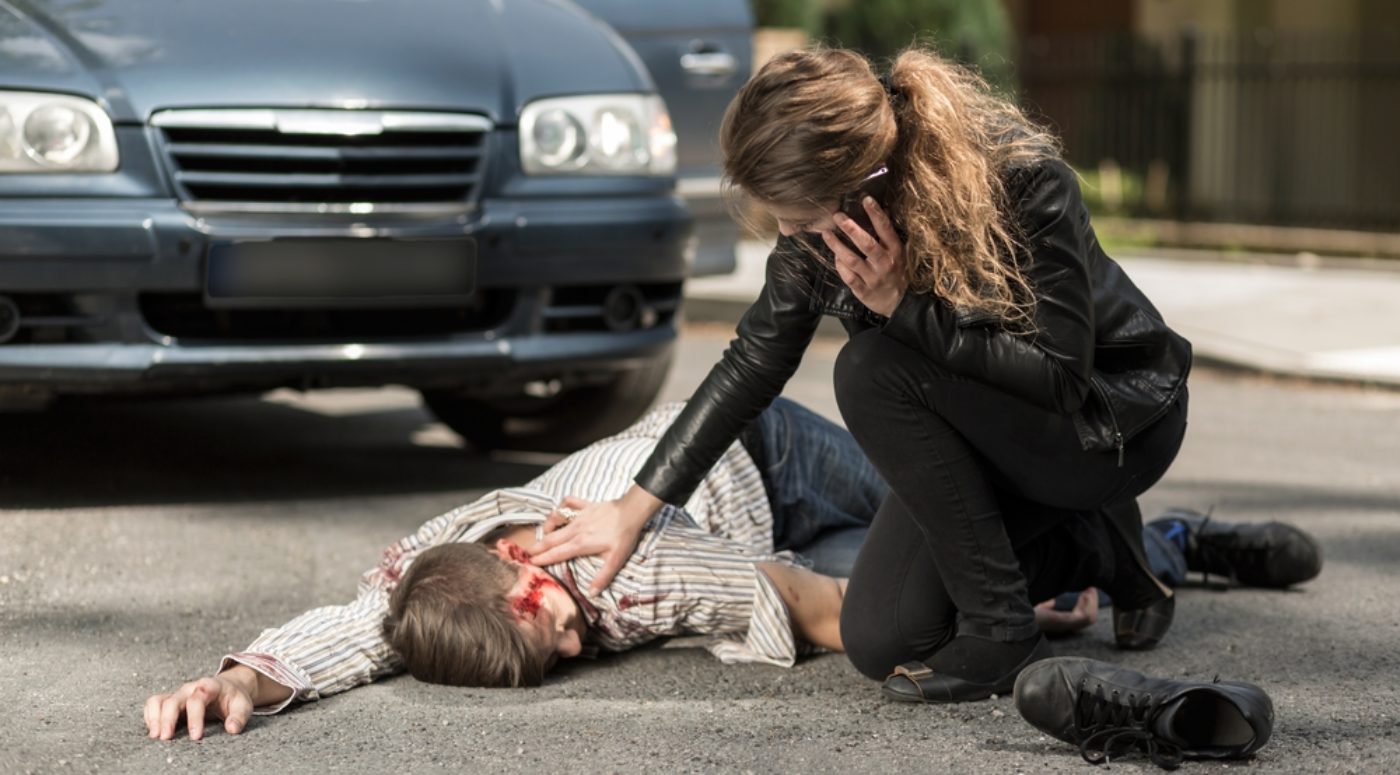

If you have been charged with involuntary manslaughter, the chances are that you are going through a difficult time. In addition to battling with your conscience to consider whether your actions may have contributed to loss of life, you are no doubt thinking about your trial date with apprehension. Perhaps you are wondering what involuntary manslaughter means in everyday language, and the sentence that you could face if you are convicted. This article aims to answer some of the questions that you may have about this offence. When it comes to the law, knowledge is power. By equipping yourself with information in respect of the offence, and the way that it is applied by the courts, you are giving yourself the best possible chance of achieving a just outcome in your case.
What is the definition of involuntary manslaughter?
Involuntary manslaughter refers to manslaughter where the defendant lacks the required mental intention for murder. Like murder, manslaughter is an offence involving the unlawful killing of a person. To be convicted of murder, the court must find that you intended to kill or cause grievous bodily harm. If no such intention is apparent, you are likely to be charged with involuntary manslaughter. By contrast, voluntary manslaughter relates to circumstances where the defendant did have the mental intention required for murder i.e. they intended to kill or seriously harm the victim, but their charge has been reduced because they have successfully relied on a defence, such as diminished responsibility.
What are the types of involuntary manslaughter?
Involuntary manslaughter can be split into two types: manslaughter arising from an unlawful and dangerous act, and gross negligence manslaughter.
Manslaughter arising from an unlawful and dangerous act
This is where the defendant is found to have intentionally committed an act that is both unlawful and dangerous, which results in a person’s death. For an act to be unlawful, it must be a criminal offence.
When the court considers the dangerousness of a defendant’s behaviour, it will apply the objective test of whether all sober and reasonable people would recognise the act to be dangerous. An act will be considered to be dangerous if it exposed someone to the risk of harm, even if it was not necessarily the same person who subsequently died. This is known as the principle of transferred malice. An act will also be dangerous if it posed a general risk to the public – e.g. arson – even if this was not directed against anyone specific. Where a death arose due to the use of force, in circumstances where the defendant was justified in using some force, such as a nightclub bouncer dealing with an aggressive drunken patron, the prosecution will have to prove that the defendant intentionally or recklessly used such force, knowing that it was excessive in the circumstances as he or she believed them to be.
Gross negligence manslaughter
This is where the defendant has an existing duty of care towards the victim. A duty of care most often arises in the workplace, in the context of health professional to patient, or in relation to a detainee who is in custody. The prosecution would need to show that the defendant failed in their duty of care towards the victim, resulting in their death. The victim’s death must be a reasonably foreseeable consequence of the defendant’s action. The court must find that the negligence that was the cause of the death amounts to gross negligence and is, therefore, a crime. This is a very high threshold to meet.
In order to secure a conviction for gross negligence manslaughter, the court would have to show that the defendant’s conduct fell far below an everyday error or commonplace negligence to a grossly unacceptable standard. The leading case on gross negligence manslaughter found that the breach of duty of care must involve a serious and obvious risk of death. The Crown Prosecution Service (CPS) has extensive additional guidance on this offence.
Can you be charged with gross negligence manslaughter after a car accident?
Gross negligence manslaughter can include killing someone by dangerous driving. This could be caused by a vehicle that has been so poorly maintained that it meets the threshold of gross negligence. For example, the owner was driving the vehicle, and was aware that the brakes were not operational. They were then involved in an accident, where a death was caused by the car’s failure to stop in time. Gross negligence manslaughter could also occur where a death was caused by grossly negligent driving.
However, the prosecution would need to convince the court that the proper charge was gross negligence manslaughter, not death by dangerous driving, as set out in Section 1 of the Road Traffic Act 1988. To do this, they would need to show that there was a serious and obvious risk of death associated with the defendant’s conduct.
Involuntary manslaughter sentencing guidelines
In 2018, the government published guidelines that must be followed by the courts when sentencing adult defendants for manslaughter. The maximum sentence for manslaughter is life imprisonment. However, there is a huge variation in the possible sentences, depending on the culpability (blameworthiness) of the defendant’s conduct, and other aggravating factors.
Unlawful act manslaughter
The range of custodial sentences is between one to 24 years. Factors that suggest higher culpability include an intention to seriously harm the victim, or if the offence was committed whilst seeking to escape arrest. Other aggravating factors include previous criminal convictions, committing the offence in front of children, or abusing a position of trust. Similarly, if the killing resulted from domestic violence, this would be considered a seriously aggravating feature that has to be properly reflected in the sentence imposed.
A defendant will be less culpable where they were acting in self-defence, or where there is no intention by the defendant to cause any harm, and no obvious risk of anything more than minor harm.
Gross negligence manslaughter
If convicted of this offence, you would face imprisonment for between one and 18 years. You are likely to face a longer sentence if you were aware of the victim’s suffering or risk of death and you persisted with your behaviour. For example, if you were a healthcare professional who was aware of your patient’s deteriorating condition but failed to take appropriate steps to treat them, you will face a harsher punishment.
The court would also find you more culpable if the death occurred in the context of other criminality. For example, you would receive a heftier sentence if you committed the offence whilst also in breach of health and safety rules in the workplace.
If other criminal offences were committed in the same incident – such as, for example, robbery or theft, the Sentencing Council recommends that the defendant should be given concurrent sentences (i.e. sentences that run at the same time) to reflect the overall criminality of the incident. Detailed involuntary manslaughter sentencing guidelines can be found here.
Involuntary manslaughter case examples
Unlawful act manslaughter
Mischievous teenagers who pushed a rock into the path of an oncoming train or throw objects at cars on the motorway, resulting in the death of drivers or passengers, would be convicted of unlawful act manslaughter.
- Deaths that arise from a bar brawl, where the defendant did not intend the victim serious harm but nonetheless caused it through their violence, would also be charged as unlawful act manslaughter.
- If a man pushed his wife in a domestic violence altercation, causing her to slip and fall and hit her head, resulting in her death, this would be sentenced harshly by the courts if it occurred following other incidents of domestic abuse by the husband against the wife.
- Note that you cannot be charged with unlawful act manslaughter for simply supplying someone with drugs. Say for example, a drug dealer sold heroin to a drug user, and even loaded a syringe, and prepared the tourniquet for the user to inject the drug. If the user subsequently overdosed and died, the dealer could not be charged with manslaughter. The courts have found that in this situation, criminal law assumes the existence of free will, which means that the deceased voluntarily took the drug, and hence the responsibility for his loss of life does not fall upon another person.
Gross negligence manslaughter
- A doctor may be convicted of gross negligence manslaughter if they prescribe a patient a drug to which their medical notes show that they are allergic, resulting in their death.
- A police custody sergeant could be convicted of gross negligence manslaughter if, they were aware that a person being remanded in a police cell was a suicide risk but they grossly failed in their duty to take safety precautions – such as failing to conduct proper checks on the detained person, or failing to remove items such as shoelaces which the person could use to harm themselves.
How can I get get further help?
If you or a loved one has been accused or charged of involuntary manslaughter, do not delay in seeking legal assistance. With a friendly professional team of specialist criminal defence solicitors on hand, Stuart Miller Solicitors is here to help. Contact us today for a no obligation consultation.
OUR COMMITMENTS TO YOU:
-
Responsive
A legal expert will consult you within 24 hours of making an enquiry.
-
Empathetic
We will always treat you with trust, understanding and respect.
-
Specialised
Your case will be handled by an expert who specialises in your type of offence.
-
Proactive
We will take early action to end proceedings as soon as it is practically and legally possible to do so.
-
Engaged
You will be kept updated on your case at all times. We will provide a named contact available to answer your questions.
-
Caring
We understand this is a difficult and stressful time for you and your family. Our team will support you every step of the way.
-
Tenacious
We will never give up on your case. We fight tirelessly to get you the best possible outcome.

